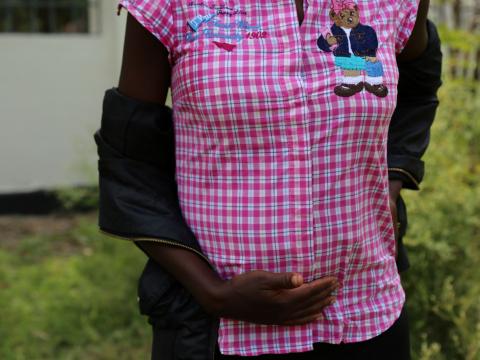Redefining Discipline: The Power of Positive Parenting

In the wake of a scathing commentary on the impact of parenting and social media on children, delivered in the form of a Netflix Limited series titled Adolescence, many parents have found themselves questioning their parenting and their capacity to protect their children from negative societal influence.
When a child brutally murders a schoolmate, his parents are left grappling with the weight of regret, of things said and unsaid, of actions that seemed harmless but were in retrospect harmful, and with the pain of a society that punishes them for their child’s actions.
At the end of the series, the parents examine their roles in facilitating the unfortunate outcome, reflecting on what they could have done better. This is where positive parenting comes in.
As a viewer, I surmised that while everyone has a role to play in stopping the occurrence of similar outcomes at every level of society, parents can do exactly that by implementing positive parenting.
So, what exactly is positive parenting and how can we implement it for better, positive outcomes?
Positive parenting

According to the World Health Organization (WHO), positive parenting is parental behaviour based on the best interests of the child that is nurturing, empowering, non-violent and provides recognition and guidance which involves setting of boundaries to enable the full development of the child.
It focuses on building strong, supportive parent-child relationships through positive reinforcement, clear communication, and consistent boundaries, fostering healthy emotional and social development.
Positive parenting is based on Alfred Adler’s philosophy which emphasizes treating children with respect and empathy, setting clear expectations and boundaries, and encouraging their sense of competence and belonging, ultimately fostering resilient and capable individuals.
Components of positive parenting
Its basic components include caregiver mental health support; age-appropriate support for health growth, learning and development; positive reinforcement; promotion of autonomy and resilience; social emotional regulation; stress management and self-care, and communication.
Positive parenting in action
Below are tips and techniques for practising and implementing positive parenting:
Communication

Effective communication is a key component of positive parenting. Setting clear expectations and boundaries is important both for you and your child.
Communicating boundaries and expectations reduces conflict as both you and your child know exactly what is required of you.
Any hindrance to achieving the set expectation can be dealt with early enough and any support required provided early on. This makes for a peaceful and positive environment.
Daily check-ins with your child, asking about their day, not only makes them feel loved but also provides an opportunity for them to share any struggles or interests with you. This way, you are actively participate in your child’s life and progress.
Spending quality time with your children is vital as it helps you understand them and take note of any changes and developments on time.
Positive reinforcement

Praising your children often for their accomplishments encourages them to continue achieving more.
It also makes them feel seen and their efforts recognised. Do not hold back from congratulating your child when they do a chore well or improve their grade.
Children notice your tone, body language and expression when you speak about them. Your words and actions as a parent have an impact on their self-concept and self-esteem more than anything else. So, be kind and generous with your words.
Positive discipline

Positive parenting does not mean that discipline is lacking or frowned upon.
Discipline is a necessary and important part of raising children to be well-adjusted adults. Not all discipline is positive or beneficial, though.
Practitioners of positive discipline believe that good behaviour can be taught and reinforced while weaning bad behaviours without hurting the child verbally or physically. Discipline should not make your children question whether you love them or not.
Ultimately, the goal of discipline is to help children choose acceptable behaviours and learn self-control, so it is important that your children build positive connotations of discipline as a tool to make them better people.
Establishing and communicating house rules helps kids understand your expectations and develop self-control. If your expectations are not met, discipline your children and communicate exactly why they are being disciplined.
Be sure to be consistent with the discipline until they understand your boundaries.
Positive parenting is not synonymous with gentle parenting nor does it mean giving children free reign. It aims to make parenting a more collaborative effort where children and parents work together to achieve the best possible outcomes for the child and, by extension, the family.







